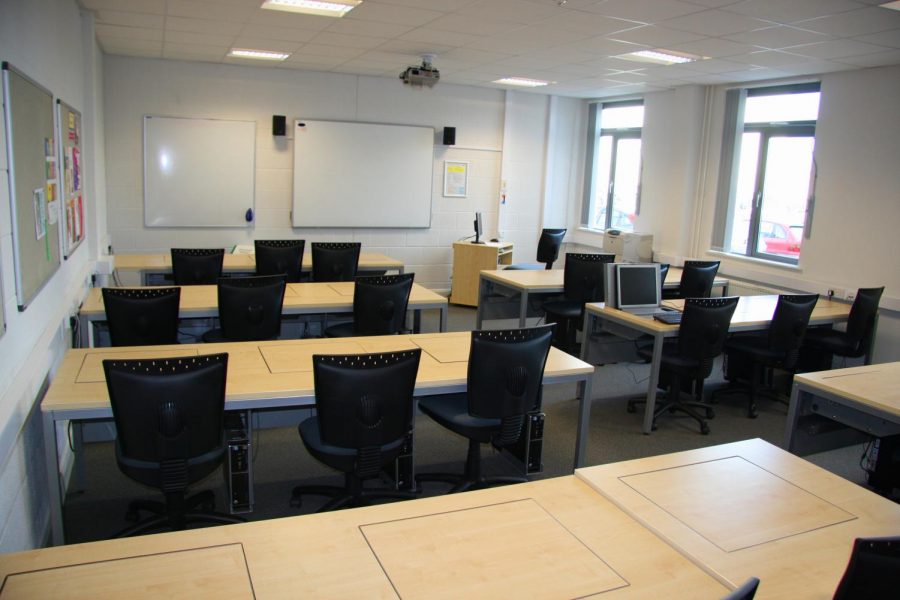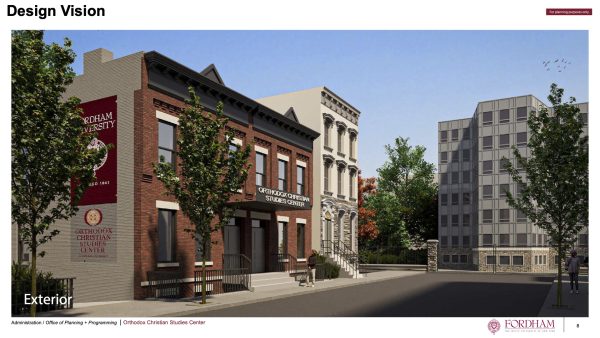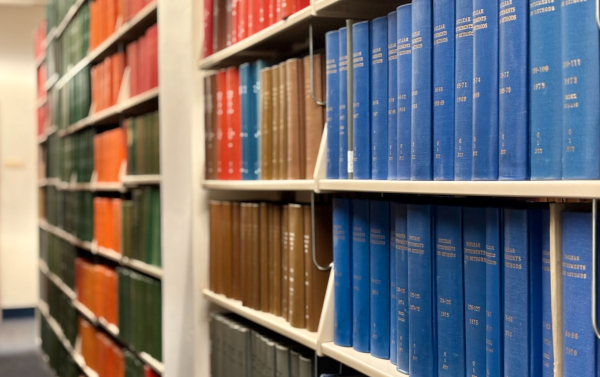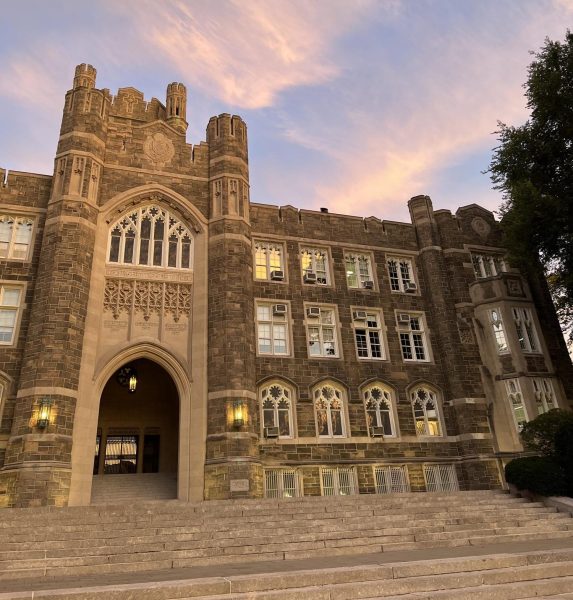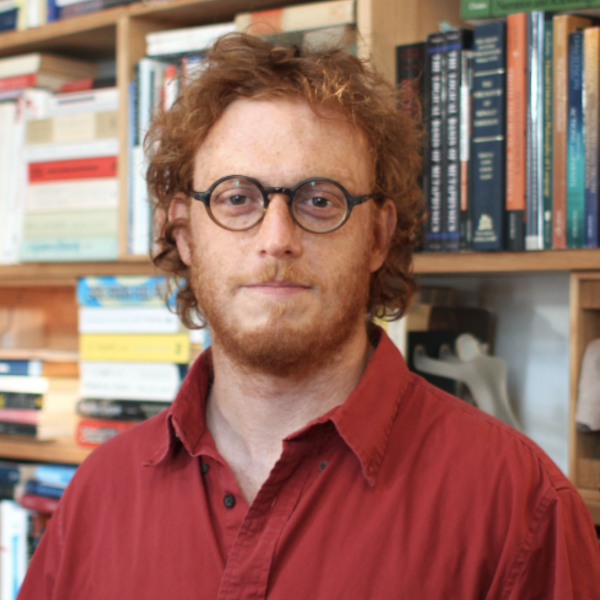Faculty and Students Discuss Transition Back to In-Person Classes
In March of 2020, schools and universities nationwide closed campuses and moved courses online in response to the rapidly spreading COVID-19 pandemic. Now, a year and a half later, Fordham University is once again holding its normal load of in-person classes for the fall semester.
However, this return to classrooms on Fordham’s campuses has not coincided with any real end to the coronavirus pandemic, as the delta variant continues to present a risk even to fully vaccinated people, according to the CDC.
In light of the ongoing pandemic, the university has maintained several significant COVID-19-related policies. All Fordham students and employees had to be vaccinated before the start of the semester, though some religious and medical exemptions were permitted, according to communications from Marco Valera, the vice president for administration and COVID-19 coordinator.
Masks are required in all public indoor spaces regardless of vaccination status according to another communication from Valera. Like in the fall and spring semesters of the previous academic year, Fordham students and faculty must continue to complete daily health screenings with the VitalCheck service.
Johnny Brennan, a professor in the philosophy department, said he approves of the safety guidelines still in place and feels comfortable returning to in-person classes. “For the most part, I felt safe, and here’s why: we live in a state that has pretty good vaccination rates that are higher than the national average,” said Brennan. “We are in a liberal state that has more mandates for not only masking but for vaccines, Fordham instituted a vaccination policy … I knew the chances of me being in a room with unvaccinated students were relatively low.”
Though masks are an important protective measure, they do come with their own set of challenges, said Greg Licciardi, a professor in the Gabelli School of Business. Students may struggle to hear their professors and vice versa. It is also difficult to read expressions and learn faces with masks on.
“Facial expression is so important when you’re teaching, to see if someone is smiling or if they’re understanding what you’re saying and that comes from me too, I smile a lot when I speak,” said Licciardi. “A lot of that gets lost by having the mask on, but hopefully that’ll change soon.”
For students returning to in-person classes after so many semesters in online and hybrid courses, the start of the fall semester could feel a bit surreal. “It’s completely different even just walking around now like the atmosphere is so different, last year was like so dead,” said Vinny Vitanza, FCRH ’24.
Vitanza said he noticed that more of his peers were taking online classes in the spring last year than in the fall and wondered whether the ease of staying home had led to a more empty campus last semester. “The first semester, [the number of students on campus] was definitely more than the second semester,” he remembered. “At the end of the first semester, I think a lot of people had enough of not being able to do anything and just ended up staying home for the second semester.”
Vitanza, an orientation leader this fall, said it was immediately clear that the upcoming semester would feel like a completely separate experience from the previous year. “By the end of orientation, I was like ‘This is not at all what college was last year,’” he said.
After many students spent most of last year attending class virtually, there are concerns that these modified courses might not have prepared them for new classes. “Almost all of my classes this year are an upper level of my classes from last year,” said Cece McNeely, GSB ’23. “I’ve noticed already in the first week and a half that sometimes [professors] ask us questions and are like, ‘Oh you learned this in financial management.’ Even though I loved my financial management professor, I didn’t really absorb as much information as I probably would have had I been in person.”
Despite the awkward transition the return to masked in-person classes may present, McNeely says it is a preferable alternative to the hybrid model many of her classes adopted last year.
“It was really hard having half of our class be physically in person and half be virtual,” she said.
In her business classes, group projects were particularly difficult, she explained. “This didn’t happen with my small group, but I know for a lot of other small groups, they would have three people who were only virtual and then three people that were in person so just having to coordinate like that is really difficult,” said McNeely.
Fordham faculty and administrators have expressed excitement about returning to in-person classes and activities on campus. In an email to students at Fordham College at Rose Hill, Dr. Maura Mast, dean of the college, wrote, “I am so delighted to see our campus springing to life as the new and returning students find their way. I’m so excited that you are here and I look forward to seeing you on campus.”
Dr. Jon Friedrich, a professor in the chemistry department, stated that after having taught for so many years the pandemic has shown him that in-person classes are “the way it should be.”
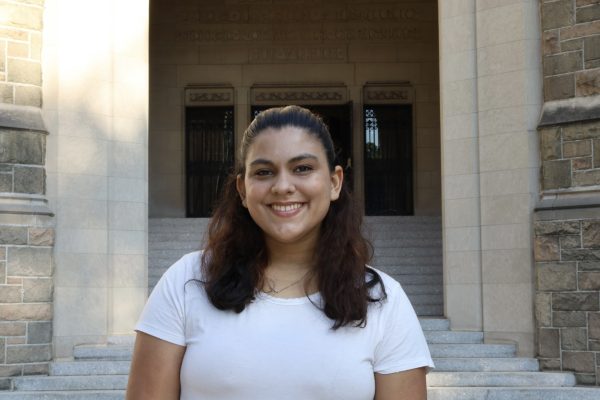
Julianna Morales is a senior from Pittsford, N.Y., majoring in psychology with a double minor in English and disability studies. Julianna joined the Ram...





































































































































































































